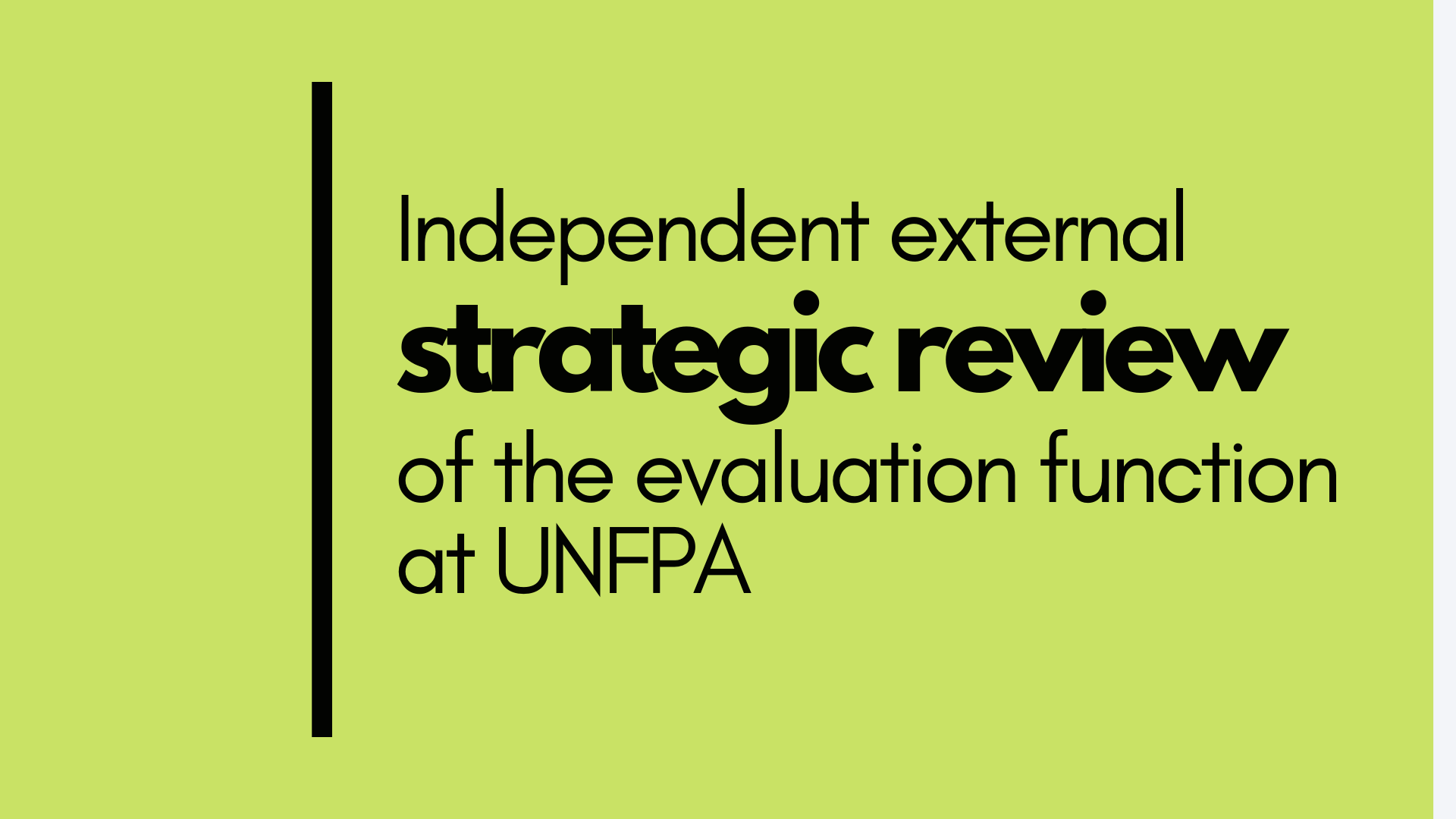
Independent external strategic review of the evaluation function of UNFPA
Resource date: 01 May 2018

Resource date: 01 May 2018
The purpose of the review of the evaluation function was to (a) assess if the evaluation policy should be revised or not–and, if so, identify areas of the policy that should be revised; and (b) provide an independent assessment of the evaluation function in UNFPA against the UNEG norms and standards of independence, credibility and utility.
To ensure independence of the review process and content, a steering committee to oversee the review–including selection of an independent external consultant to carry out the review, as well as approval of the review report–was set up. The steering committee was chaired by the UNEG co-chair of the task force on review of evaluation functions, and composed of a representative from the Evaluation Office of the Danish Ministry of Foreign Affairs and the UNFPA Office of the Executive Director. To ensure a geographical and institutional diversity of perspectives, an external technical advisory panel was also established. Chaired by the former UNEG vice chair and Director of the UNICEF Evaluation Office, the advisory panel included the Deputy Executive Director, National Council for Evaluation of Public Policies, Coneval, Mexico; the Director General, Independent Evaluation Group; Vice-President, The World Bank; Governing Board Secretary, Asia Pacific Evaluation Association; and the President, African Evaluation Association.
The review found that: (a) The evaluation policy is overall sound but should be updated for consistency with developments and changes both within UNFPA and in the broader United Nations and global contexts. (b) Presentations of results and recommendations from evaluations to the Executive Board should be mindful of its governance function and requirements. This means, among other considerations, not delving into technical and methodological information beyond what is necessary to provide the Board with information relevant to its strategic, policy and programming interests. (c) The Evaluation Office should guide the evaluation function in UNFPA towards a better balance between accountability, decision support and learning purposes. (d) The Evaluation Office should better integrate relevant developments in the theory and practice of evaluation. The conception of evaluation quality should be based on a more comprehensive and value-based understanding of quality. (e) The Evaluation Office, in its role as custodian of the evaluation function in UNFPA, together with relevant stakeholders, should progressively address the nature and organization of the decentralized evaluation function. (f) The Evaluation Office should address systematically the review’s observations to further improve the methodology, findings and analysis, conclusions and the communication of evaluation reports. (g) The Evaluation Office should update progressively its Evaluation Quality Assurance and Assessment system.
UNFPA welcomed the conclusions of this exercise. It provided key lessons for the Evaluation Office and the organization at large, ensuring that UNFPA is able to demonstrate its contribution to development results more effectively. The consultative process of the review was a valuable learning opportunity in itself, which led to the real-time assimilation of its findings and conclusions, including allowing real-time implementation of some recommendations. UNFPA has accepted all recommendations and commits to their timely implementation.